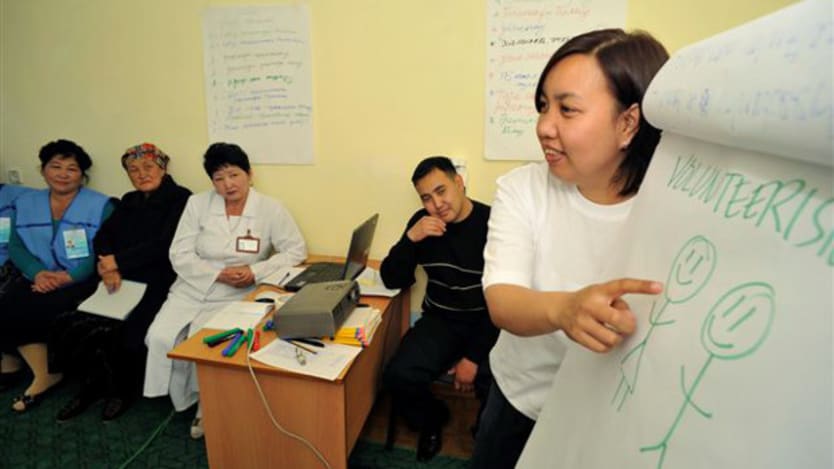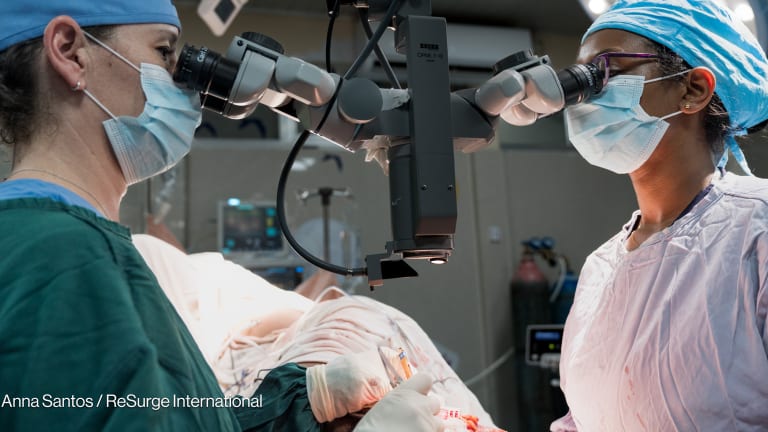New approaches needed to end TB

In May 2014, the World Health Assembly endorsed a new global strategy for fighting tuberculosis — the world’s most deadly infectious disease after AIDS.
The goals are ambitious. Called the End TB Strategy, it aims to reduce the number of people who develop tuberculosis each year by 90 percent, to reduce the number who die from the disease by 95 percent and to eliminate the number of families who face catastrophic costs from tuberculosis by 2035. If successful, within 20 years we will have virtually eliminated tuberculosis as a public health problem worldwide.
Given that tuberculosis has been killing people in large numbers for centuries, fulfilling the End TB Strategy would be one of the greatest public health accomplishments in history.
Today, however, we appear to be losing momentum in the global fight against tuberculosis.
The World Health Organization collects routine epidemiologic data from countries and territories representing 99 percent of the world’s tuberculosis burden, and reports them each year. After years in which the global mortality rate held steady at 29 TB deaths per 100,000 people, it began to decline in 1999 and fell every year, to 16 TB deaths per 100,000 people in 2012, where it held steady in 2013 — the last year for which we have data.
Similarly, the annual decline in the global TB incidence rate (the number of new tuberculosis cases in a given year, per 100,000 people) has slowed to 1.5 percent, which is far below the speed of decline that should be reached to fulfil the End TB Strategy goals.
Similar trends have played out regionally across sub-Saharan Africa, where TB rates are the highest in the world.
To implement the End TB Strategy, it’s clear that we need to rapidly pursue new solutions, make new allies and take new risks. The first five years of the next 20 are essential to establish a new trajectory.
Since Dr. Robert Koch discovered more than a century ago that tuberculosis is caused by bacteria that transmits through the air, TB experts have emphasized that our efforts to address the disease need to be holistic. In their classic book “The White Plague,” epidemiologists Rene and Jean Dubos wrote: “Tuberculosis is a social disease and presents problems that transcend the conventional medical approach … The impact of social and economic factors [must] be considered as much as the mechanisms by which tubercle bacilli cause damage to the human body.”
We believe the Slum Partnerships to Actively Respond to Tuberculosis in Kampala, or SPARK-TB, project being implemented in Uganda through the support of the Stop TB Partnership initiative TB REACH, provides a valuable and innovative model for diagnosing and treating TB that takes into account the social and economic factors that promote its spread in low-income, urban areas.
People living in Kampala’s slums frequent small independent clinics — sometimes located in one or two small congested rooms. Through an intensive capacity-building effort, SPARK-TB is working with providers in such clinics in Kampala and surrounding districts to provide quality TB diagnostic and care services, and to link them to Uganda’s national TB program.
Through the project, private for-profit clinics in the slums are brought into the SPARK-TB partnership and are branded with a bright yellow logo that indicates TB testing is offered on site. The International Union Against Tuberculosis and Lung Disease works closely with the staff of these clinics, training the health workers and laboratory personnel, providing support supervision and quality-assured anti-TB medications, disseminating national TB guidelines, and providing tools for recording and reporting data. The capacity of the clinic’s laboratories is further strengthened by enrolling them in the national external quality assurance scheme to improve the accuracy of their diagnoses.
In order to increase demand for the services offered by the private clinics, SPARK-TB organizes health camps that provide a platform to not only sensitize the community but also to offer free TB screening and diagnosis, free HIV testing services and referrals to care and treatment at the clinics.
When SPARK-TB got off the ground, only six of the clinics serving this mostly poor population offered TB services. Within two years, more than 70 private clinics in Kampala were providing quality TB diagnosis and care, and some 1,700 TB patients were diagnosed and started on treatment. All of these patients were provided regular home visits by community health workers, who monitored adherence to treatment, provided additional health education and addressed patients’ questions.
One of the most important features of the project is that all of the people administering it have been hired from the local community, both through paid and volunteer positions. These community health workers had previously been supporting other health interventions such as immunization campaigns, but before SPARK-TB started they weren’t equipped to help their communities fight TB. Through this community systems strengthening effort, the project is building capacity that will outlast the project itself.
The program has been successful enough that with additional support from TB REACH, it’s now in the process of being expanded to 12 other major urban areas in Uganda and is being integrated into the national TB strategy.
Tuberculosis is an insidious disease; it passes quietly through the air, readily develops drug-resistance when inadequately treated, and carries a stigma that can affect people’s lives in ways that supersede the symptoms of the disease itself.
Innovative projects like SPARK-TB, which build up local capacity and rely on community participation to deliver quality-assured health services, will ensure that communities are properly equipped and able to provide care and support for their own people — helping us make the necessary strides toward the elimination of TB within the next generation.
Join the Devex community and access more in-depth analysis, breaking news and business advice — and a host of other services — on international development, humanitarian aid and global health.
Read more stories on tuberculosis:
● Working together to combat multidrug-resistant tuberculosis
● New R&D models needed to tackle drug-resistant TB
● Facing down the TB-diabetes co-epidemic
● Where there's a will, there are many ways: Healthy systems and disease-tailored interventions
● On the path to end TB: How social franchising can effectively engage private practitioners
Search for articles
Most Read
- 1
- 2
- 3
- 4
- 5










